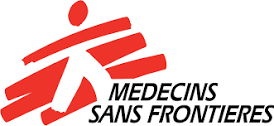Mozambique: MSF suspends activities in Mocímboa da Praia as violence surges
Civilians, medical workers must be protected
Pemba, 26 September 2025 – The upsurge of violence in northern Mozambique is making it extremely difficult to deliver medical activities in a safe manner in multiple areas of Cabo Delgado province. Following attacks this month in Mocímboa da Praia, Médecins Sans Frontières/Doctors Without Borders (MSF) has taken the painful decision to temporarily suspend activities in the town and district. MSF calls on all armed actors to actively ensure the protection of civilians, humanitarian workers and medical facilities from the ongoing violence.
“We are deeply concerned about the escalating violence and its direct impact on every aspect of people’s lives, including access to healthcare,” says Víctor García Leonor, MSF head of operations for Mozambique. “Hundreds of thousands of people are in dire need of medical and humanitarian assistance in Cabo Delgado. But insecurity is continuously cutting them off from reaching it. This results in preventable deaths and suffering.”
Since early September, Mocímboa da Praia has experienced armed incursions. Armed men have brutally killed and injured civilians, have reportedly threatened the population and looted goods. These attacks reached neighbourhoods located just a few kilometres from the town centre and have led several thousands1 to flee the town. In recent months, violence has also intensified in other districts of Cabo Delgado, spilling over into neighbouring provinces.
As of 26 September, MSF has suspended all medical activities in Mocímboa da Praia. Services were being carried out in collaboration with the Ministry of Health. They include the emergency room and maternity ward at the District Rural Hospital of Mocímboa da Praia, other lifesaving care at the facility and the referral system that enables patients with severe conditions to be transferred to other facilities. Mental health and psychosocial support as well as outreach activities run by community health workers in remote areas are also suspended. Some patients requiring specialised care have been referred to health facilities in Pemba and Mueda.
Throughout 2025, due to insecurity, MSF has been forced to suspend temporarily some medical activities across locations in Cabo Delgado on several occasions, from days to weeks at a time.
"MSF remains committed to standing by the people of Cabo Delgado and to resume activities in Mocímboa da Praia as soon as we obtain guarantees that our staff will be able to work in a safe manner,” says García Leonor.
The district of Mocímboa da Praia has an estimated population of about 150,000 to 200,000 people. The town was first attacked in October 2017, at the onset of the conflict, and in the years that followed it saw waves of violence and large-scale displacement before families gradually began to return. The attacks in September have been the most violent incidents in years.
Amid widening humanitarian funding cuts and an extremely volatile situation, communities in Cabo Delgado are increasingly neglected and with fewer options to access basic services after nearly eight years of conflict. Around 430,000 people are still internally displaced2. Many have repeatedly fled and live in fear and uncertainty. Moreover, the health system, maimed by conflict and natural disasters, is under enormous strain and becomes overwhelmed with new emergencies such as sudden outbursts of displacement.
"Time and again we call on all armed actors and stakeholders to protect civilians, medical facilities and humanitarian workers from violence,” says García Leonor. “Safe and unhindered access to healthcare is vital for communities caught in conflict and their freedom of movement should be guaranteed when they are seeking protection.”
In Cabo Delgado, MSF also works in Mueda, Macomia and Palma. We provide general outpatient consultations, emergency care, maternity and paediatric services, treatment for HIV and TB and mental health and psychosocial support. In the first half of 2025, we carried out nearly 100,000 outpatient consultations and conducted mental health group activities for over 35,000 people. We run mobile clinics and outreach activities, refer patients to health centres and support medical facilities and hospitals in collaboration with the Ministry of Health.
Hannah Hoexter
